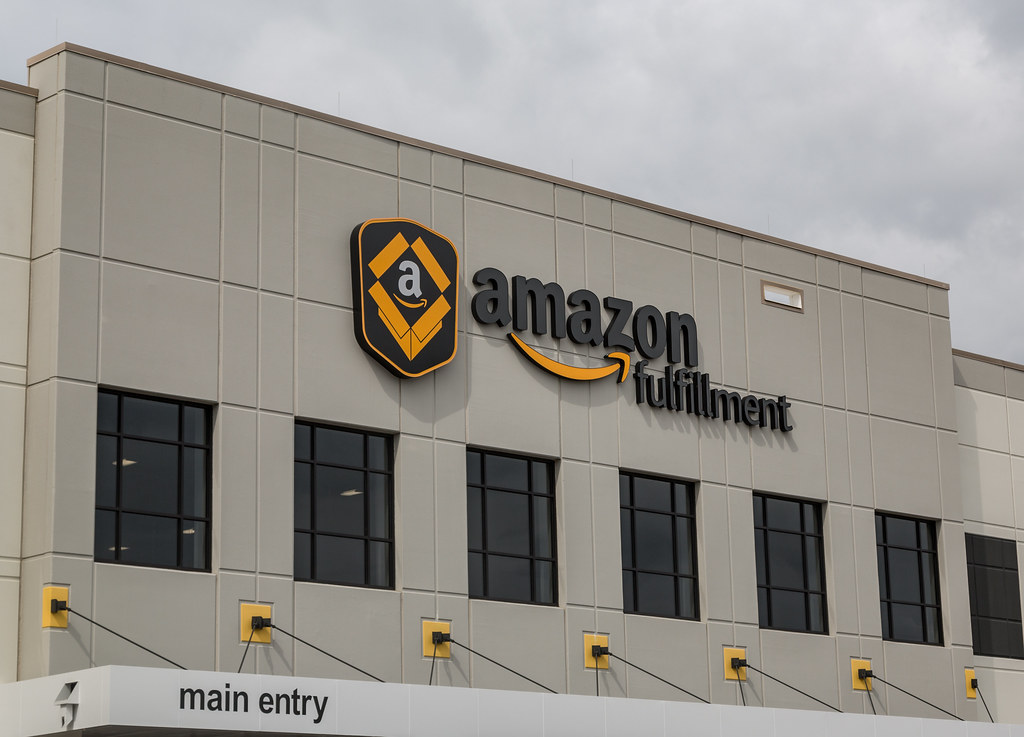Answers

Jun 27, 2019 - 07:51 AM
Shopify has become a household name for anyone in ecommerce because it does what it does well - and there’s no reason to think it won’t do just as well with fulfillment. In fact, this fulfillment service fills a fairly open niche: the need for small companies to be able to offer shipping fast enough to compete with Amazon.
Shopify has always existed in order to make it easy to open an online store, and offering fulfillment simply takes that goal one step further. In fact, even more merchants might start choosing Shopify over other options, since the platform now makes fulfillment so easy. (And Shopify fulfillment looks like it will only be available to Shopify merchants, at least for now.)
Although Amazon has dominated the fulfillment game thus far, and has the massive budget to prove it, the service isn’t without failings. For one, some sellers have expressed concerns over Amazon’s “white labeling” practice, in which Amazon re-brands other companies’ products under its own label to make them look like Amazon products. This type of anti-competitive practice will likely drive small sellers to Shopify fulfillment.
Also, using Amazon fulfillment if you use Amazon’s marketplace for orders is far more affordable than using it if you use a different platform for orders. The steep pricing is meant to reduce competition, but now those competitors can simply turn to Shopify for affordable, fast fulfillment. Amazon’s practices aim to reduce competition from merchants, but they could soon backfire, now that Shopify offers a welcoming alternative.

Right now, Amazon has a de facto monopoly on fulfillment, since no competing options are as fast or as reliable. But Shopify is poised to demolish that monopoly and reintroduce real competition to the fulfillment game.
Non-Amazon sellers tired of Amazon’s anti-competitive behavior probably won’t take long to turn to Shopify. And, even though Amazon is bigger, there’s room for Shopify to compete by undercutting Amazon’s prices. Shopify is big enough to pull it off successfully.
That said, if Amazon decides to drop its prices to compete, Shopify might have more difficulty succeeding. But so far, analysts see Shopify as a viable competitor, and the fulfillment launch has already pushed Shopify’s stock up by seven percent.
Amazon treats small- and medium-sized business owners using its fulfillment services like competition. Shopify treats them like valuable entrepreneurs, and offers them a path to success. So now that those business owners no longer need to stick with Amazon’s fulfillment services, why would they?

Jul 11, 2019 - 03:46 PM
Yes indeed, the previous answer is spot on! Ben Thompson of Stratechery published an incisive piece about it and below is the 'money quote'.
Shopify is using the model used successfully by TSMC (Taiwan Semiconductor) to dominate the semiconductor industry. Before TSMC, independent chip design companies relied on the bigger companies to fabricate their designs.
This often led to intellectual property theft by the big boys who would then turn around and make/market similar designs--similar to the way Amazon 'white labels' successful products sold by third party merchants and re-sells as Amazon!
TSMC decided they would NEVER make/sell their own designs but would instead provide world class fabrication facilities to all the independent chip designers. The founder is a billionaire today!
Like TSMC, Shopify does not operate its own stores nor sell merchandise directly to customers but provide an easy to use platform for others to do so!
It is possible Shopify could surpass Amazon just like TSMC eventually surpassed Intel in value.
What is powerful about this model [Shopify's model] is that it leverages the best parts of modularity — diversity and competition at different parts of the value chain — and aligns the incentives of all of them. Every referral partner, developer, theme designer, and now 3PL provider [the third party logistics providers that Shopify is using to offer fulfillment] are simultaneously incentivized to compete with each other narrowly and ensure that Shopify succeeds broadly, because that means the pie is bigger for everyone. This is the only way to take on an integrated Aggregator like Amazon: trying to replicate what Amazon has built up over decades, as Walmart has attempted, is madness. Amazon has the advantage in every part of the stack, from more customers to more suppliers to lower fulfillment costs to faster delivery.

Oct 04, 2021 - 10:41 PM
Yes, the preceding response is correct! Stratechery's Ben Thompson wrote an insightful essay on it, and the money quote' is below.
Shopify is following in the footsteps of TSMC (Taiwan Semiconductor), which has dominated the semiconductor sector. Independent chip design businesses used to rely on larger corporations to produce their ideas before TSMC.
Shopify has become a household brand for anybody in the e-commerce industry because it excels at what it does, and there's no reason to believe it won't excel at fulfilment as well. In reality, this fulfilment service fills a relatively unfilled niche: the necessity for small businesses to be able to compete with Amazon by offering delivery as quickly as possible.
Shopify's objective has always been to make it simple to start an online business, and adding fulfilment only pushes that goal a step further. Because Shopify now makes fulfilment so simple, even more businesses may select for it over alternative solutions. (At least, for the time being, Shopify fulfilment appears to be limited to Shopify merchants.) Even though Amazon has won the fulfilment game thus far and has the cash to show it, the service is not without flaws. For example, some sellers are concerned about Amazon's "white labelling" strategy, in which the company rebrands other firms' items under its label to make them seem like Amazon's.
Furthermore, utilising Amazon fulfilment while placing purchases on Amazon's marketplace is considerably less expensive than using it when placing orders on a separate platform. The high prices are intended to discourage competition, but those competitors can now easily turn to Shopify for low-cost, quick fulfilment. Amazon's tactics are intended to decrease merchant competition, but they may soon backfire now that Shopify provides a welcome alternative.
Amazon now has a de facto monopoly on fulfilment since no other company can match its speed or reliability. Shopify, on the other hand, is set to dismantle that monopoly and bring true competition to the fulfilment market. Non-Amazon vendors who are fed up with Amazon's anti-competitive actions are likely to flock to Shopify. Moreover, despite Amazon's size, Shopify has the opportunity to compete by lowering Amazon's prices. Shopify is big enough to be able to pull it off. However, if Amazon lowers its pricing to compete, Shopify may have a harder time succeeding. Analysts, on the other hand, regard Shopify as a serious rival thus far, and the fulfilment launch has already sent Shopify's stock higher.
Small and medium-sized businesses that use Amazon's fulfilment services are treated as competitors. Shopify recognises them as valuable business owners and provides them with a roadmap to success. Why would those company owners use Amazon's fulfilment services now that they don't have to?








Add New Comment